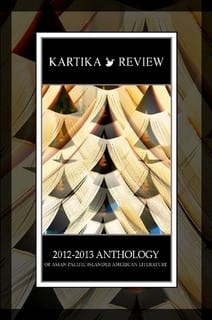Photo Credit: Madeloni Photography
Campus Author Interview: Bridget Mabunga

Bridget Mabunga is a writer, editor, educator, and an integral advocate of student support here at UC Davis. She’s published short non-fiction, and her story, “Steamed Dungeness Crab with Nanay’s Sauce,” published in Kartika Review, was nominated for the Pushcart Prize. She is a first generation-transfer college graduate who has taught college composition at a variety of levels since 2008. Currently, she is a Writing Specialist in the Academic Assistance and Tutoring Centers, serves on the board for the Chicanx/Latinx Retention Advisory Committee, and is one of the co-authors of the Aggie Grammar Guide.

Where and when did your love of writing begin?
My love of writing began with reading. I’m a reader first, and reading is still critical to my survival as a writer and a human. My mom struggled to raise us on her own, but she and my grandma were avid readers. We always had fun (second-hand) children’s books like Shel Silverstein’s Where the Sidewalk Ends and beautiful stories like The Giving Tree. As a teen, I adopted Mom and Grandma’s love of Stephen King and Dean Koontz. My grandma’s dream was to pursue higher ed. and become a writer, and I think that’s what drew me to pursue a BA in English. I wanted a chance to accomplish what she never got the opportunity to do. During my program, I learned to enjoy classic literature and fell in love with literary fiction. Amy Tan is now my hero.
Though for a long time I wasn’t brave enough to try creative writing in any formal way, I did write some crappy love poetry about my family and gave it as Christmas gifts (those poor souls having to pretend they appreciated the gift!). I finally took a creative writing class in community college, and the professor ripped my story to shreds, so I quit writing after that. The desire to write creatively resurfaced a few years after I earned my BA; I just had this sense that I had a book in me, that I needed to find a way to get it out. And for me, that was grad school. I began again with poetry, and really fell in love with sensory detail. I then took a short story class and, even though I wasn’t very good, I loved writing fiction. So I switched my MA focus from literature to creative writing and dove headlong into fiction. My poetry professor still calls me a traitor for that!
My love affair with writing (I say “affair” because it’s fraught with tension and disappointment and beauty and a palpitating heart) began in that program as I struggled to write the bones of a book that’s stuffed away into some long-unopened file on my computer. But that project got me practicing, and then, through studying other novels, I taught myself how to write a novel which took me four years. Writing that novel I discovered the magic of creating my own world where only I know what’s unfolding; the joy of having this secret all to myself drove me to finish it. After I had what I thought was a solid draft, sharing it with family and hearing their wonderful reactions gave me the confidence to keep going (cause I had WAY more work to do!). Now, as I traverse the brutal word of publishing, I still thrive off their support and some hard-won confidence that it’s a good story and hope that one day soon the novel will find its publication home.
It certainly will! In addition to helping students with their writing, you also write fiction and creative nonfiction. What do you find is true about the writing process regardless of where people might be in their writing journey?
I don’t feel like I can say what’s true about writing because it’s such an individual experience, and I don’t really know what’s true. That said, I think when writers write anywhere outside of their personal journals, they have an obligation to their readers. I don’t, however, believe that obligation is to always please the reader. I appreciate complex writing that makes me work for it or writing that others me in some way like code switching between English and another language I’m unfamiliar with. But these writerly decisions have consequences, and we writers have to decide which risks to take and whether we are prepared for the audience’s reaction to our choices. I think it’s integral that we think about our writing as a conversation between the reader and writer because once our work gets into their hands, it becomes theirs, and the meaning they make of it becomes part of the work. That’s especially true for creative writing, and I think it’s wonderful to relinquish the work so that readers can bring themselves to it. Academic writing conventions don’t allow that as much because the writer is expected to walk the reader through the ideas, but I think even in academic writing we give the work over to the reader in some way, and we have to prepare for that as we draft.

Indeed we do. What role do you see libraries playing on a University campus overall?
Libraries are critical because passively relaying and absorbing information via the internet has become pervasive. Since the university is where students often begin to deepen their critical thinking skills, we need our library experts to help guide them through that process as they practice research and learn how to ask meaningful questions of texts, themselves and the world. Librarians also help students find and enter conversations that they may never have thought they could participate in. Additionally, libraries house unique artifacts, like those found in Special Collections, and students have an opportunity to engage with rare items they cannot experience by searching online. That, I think, is the necessity of campus libraries—to support students as they interact with ideas, unearth and enter conversations between experts and discover relics related to the university’s history or research.
And that ensures a richer experience for students too. What role do you see learning support centers playing on a University campus overall?
Since I work in learning support, I’m gonna say the university can’t function without it (because I need job security). I jest! About the job security, well I do need it, but I have actual observational evidence for the value of learning support. Over the past four years in my work as a writing specialist, I have learned just how impactful learning support can be. We operate at a unique juncture in that (at UC Davis) we are part of Student Affairs, but our mission is academic support. This dynamic affords us the opportunity, in fact the duty, to serve the whole student, and that is where I believe our work shines. Students come to us for academic support, and they receive help with their coursework, but we also get to know them. We get to learn so much about them like their goals, their sense of belonging at UC Davis, things they are excited about and their concerns. We notice when they look like things aren’t right and check in on them, often connecting them with resources. We also get to celebrate with them when they succeed on an assignment, earn a scholarship or graduate. I think this sense of connection learning support staff develop with students stems from the beliefs that students bring a history of rich experience to their learning, student agency is critical to learning progress, and making mistakes leads to learning and growth. Learning support centers are places where students can practice academic concepts and develop as learners while being supported by staff who care about them, which I believe encourages deeper learning.
For more information about Bridget and her work, feel free to click here.
Profile written by: Karen McCoy